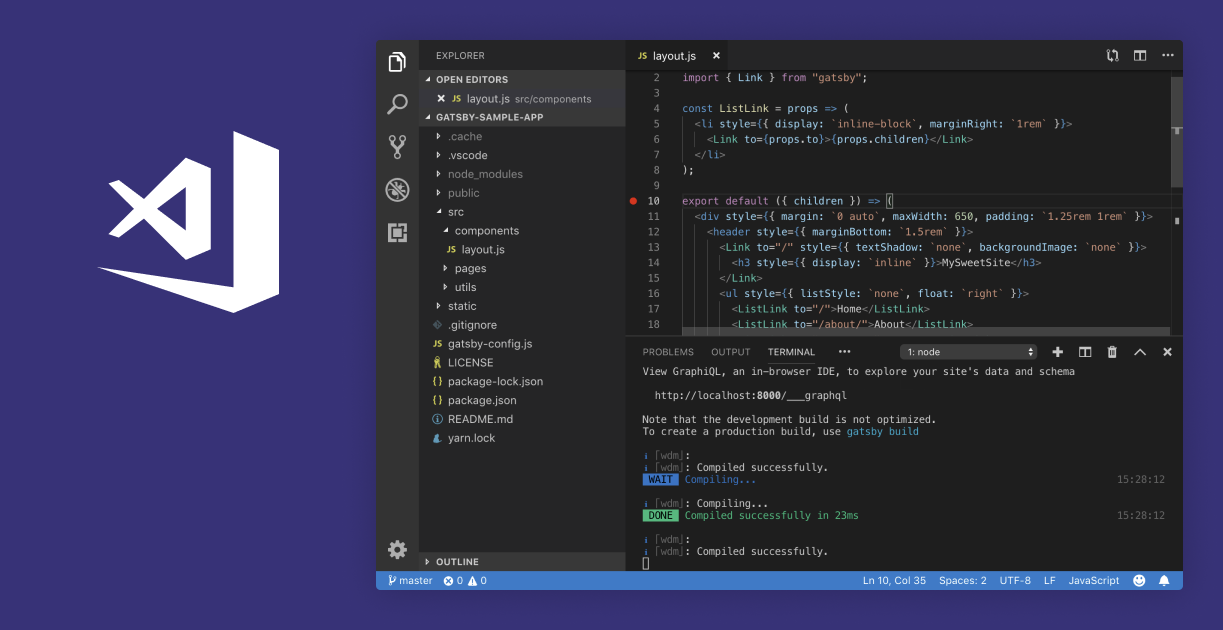
#MS VISUAL STUDIO CODE CODE#
VS Code Web comes with a number of extensions that will allow you to work with GitHub, e.g., to make quick edits, review PRs, and to quickly switch to a local clone or to a GitHub Codespace if you need more power. Other complex extensions that have been ported to VS Code Web are the Luna Paint image editor and GitHub Issue Notebooks. The work that Microsoft did to bring the language server protocol to VS Code Web can be taken as a reference for the process, including a runnable sample. Microsoft is providing detailed steps to migrate extensions including JavaScript code to the new Web extension architecture. According to Microsoft, most of UI customization extensions do work, but extensions that require any OS-specific npm modules or run local executables can't. While extensions use the same VS Code API, they cannot use the Node.js API nor load modules. An extension that can run in a web extension host is called a 'web extension'. When VS Code is used in the Web, installed extensions are run in an extension host in the browser, called the 'web extension host'. As it is understandable, not all Visual Studio Code extensions that can be used on the desktop are compatible with the web version. The power of Visual Studio Code for the desktop comes from a wealth of extensions that enable to add new features and functionality to the editor and allow many developers to be more productive and customize their workflows.

TypeScript, JavaScript, and Python use instead a new browser-native implementation of language services which additionally provides support for single file completions, semantic highlighting, and syntax errors.

This includes support for code syntax colorization, text-based completions, and bracket pair colorization. In particular, Microsoft maintains, editing, navigation, and browsing through source files is generally good for most programming languages, including Go, Rust, C/C++, PHP, and Java. The actual availability of those features depends, though, on the particular language, since they must run entirely in the browser. Microsoft has launched the Cloud-based version of its Visual Studio Code editor through the v domain, which offers a lightweight version of the editor which can be run right out from the browser with no installation.Īlbeit not on a par with its desktop counterpart, Visual Studio Code for the Web provides quite a lot of functionality, including local file editing on browsers supporting the File System Access API, syntax coloring, text-based completions, syntax highlighting and errors, and so on.


 0 kommentar(er)
0 kommentar(er)
